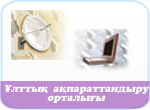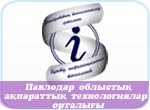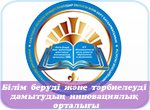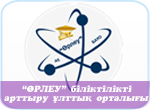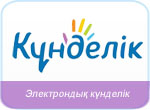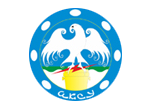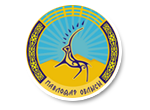Theme:What should we do?
Grade:6th
Date: April 2015
Textbook: Messages 2. Cambridge University Press. Unit 11 step 3 p. 120
Aims of the lesson:
- Educational: learn more about the modals may, can, will and shall. Students will learn how to recognize and use the different forms of may, can, will and shall in the present and past tenses and be able to master some of the most recurrent words in the English language through the following texts, grammatical explanations, and exercises
- Developing: develop students’ listening, writing and reading skills.
- Upbringing: stimulate the interest to the English language subject. Nurture love and respect to foreign culture.
Type of the lesson: new lesson.
Methods of teaching: communicative, direct method, interactive method using ICT, dialogue teaching
Visual aids: interactive board, poster, post-it notes, worksheet, rewarding sticker, textbook ‘Messages2’ Cambridge press, class CD
Material: video, power point presentation, digital educational resource # 1233 from e.edu.kz.
Connection with other subjects: Kazakh, Russian
Lesson Procedure
|
Lesson Phase by Bloom taxonomy |
Teacher’s activity |
Student’s activity |
Module |
Resource |
Time (40 min) |
|
Greeting |
- Good morning, dear students! Since this is the first time, let me introduce myself to you. My name is Rizagul Serikovna. Today I’ll teach you some English. I hope you’ll enjoy the lesson. Good luck!
|
||||
|
Ice- breaking |
Write 3 true and 1 false information about herself. True: I am also an interpreter; I have a friend called Fiona; I’ve got one brother. False: I’ve got a dog. |
Play a small ‘ice- breaking’ game. Guess the answer |
|
|
2 min |
|
Warm-up |
1. Divide into three groups: can, must, should. 2.Define aims of the lesson, give students envelopes with the aim of the lesson: sentences are cut into pieces |
1.Take a card with the picture, find your group 2.Make a sentence. 3. Define the theme and aims of the lesson
|
New methods of teaching |
Cards with the picture that can imply ability, obligation, advice; Power point presentation; envelope |
3 min |
|
Knowledge |
Play an animation (video). |
1. Watch an animation. 2. Fill in the gaps. Put must/ can/should. 1.She … drive a lorry 3.Look at the snow; it … be cold outside. 9.If you want to pass English, you … study hard. |
ICT |
Animation from DER (ЦОР)# 1276; slide
|
5 min |
|
Comprehension |
Check, explain, ask questions. On poster three groups: ‘can’, ‘must’, ‘should’ complete the rules, do the task |
1. Every group works on make their poster.
|
New methods of teaching |
Poster, markers |
5 min |
|
Application |
Observe, correct, encourage them to speak. |
2. Speaker stays, other students move to the next group, listen, leave a note ‘two stars and one wish’. |
ICT |
post-it-notes. |
5 min |
|
Analysis |
What’s happening in the picture? |
St. book p. 120 ex. 2a. Look at the scene from Lord of the Flies and listen to the questions. Listen and check.
|
New methods of teaching |
Textbook; Class CD. |
5 min |
|
Synthesis |
‘Jeopardy’ intellectual game. |
Play the game; choose a category and price of the question and answer it. |
New methods of teaching; ICT |
Power point presentation |
6 min |
|
Evaluation |
Correct, comment. Speaking. Use what you know.
|
Make a dialogue in pairs, act it out, use modal verbs ‘should, can, must’. Imagine that: 1. Your friend caught cold. Give him/her some advice. 2. It’s your friend’s birthday tomorrow. 3. Your friend has lost his/her wallet.
|
Dialogue teaching |
Presentation |
5 min |
|
Feed back |
Get feedback |
“I knew” ‘now I know’, ‘I thought differently’, ‘I don’t understand’
|
|
|
2 min |
|
Assessment |
|
Self-assessment using criteria |
|
Assessment sheet |
1 min |
|
Home work |
Learn new vocabulary |
Write |
|
|
|
Assessment sheet
|
Name TOTAL |
|||||
|
Criteria /Points |
Group work Making a poster |
Grammar Modal verbs |
Writing |
Listening
|
Speaking |
|
1 |
No participation |
Can’t use at all |
All my answers wrong |
Don’t understand at all |
Pronunciation Vocabulary is poor |
|
2 |
Inactive participation |
Understand almost nothing |
Most my answers wrong |
Understand almost nothing |
Pronunciation Vocabulary is weak |
|
3 |
Sometimes participated |
Almost understand |
Half answers wrong |
Understand partly |
Pronunciation Vocabulary is not bad |
|
4 |
Active participation |
Understand |
Most answers right |
Understand almost everything |
Pronunciation Vocabulary is good |
|
5 |
Very Active participation |
Fully understand |
All answers right |
Understand everything |
Pronunciation Vocabulary is very good |

